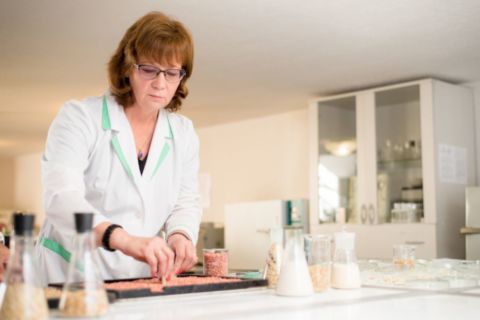"Meat" grown in vitro from animal stem cells, artificially created "chicken" eggs, granules and puree from black soldier fly larvae, cricket flour − no, these are not the fantasies of dystopian authors, today this is our possible gastronomic reality.
The downward trend in global livestock numbers remains unchanged; European countries such as Norway, the Czech Republic and Germany are fully committed to closing all their livestock farms. Feeding and maintaining animals is quite expensive, especially when compared with the simplicity, cheapness and environmental friendliness of breeding worms and arthropods, which can then be processed into food.
The food trends sweeping Europe are already overtaking Russia. For example, in Chelyabinsk, scientists from the Agroengineering University obtained a patent for the production of vermicompost using the black soldier fly; it is also planned to prepare food products and animal feed from its waste products. In the near future, local domestic producers plan to produce and add high-protein cricket flour to bread, pasta, cookies and candies (such fortified products will be labelled). Nutritionists and dieticians claim that flour from these orthoptera is superior in protein content to beef, pork, poultry and fish, and contains a lot of iron and amino acids necessary for muscle growth.
In some countries, insects are not considered exotic: they have been eaten in Africa, Asia and Latin America from time immemorial. However, in Russian food culture, eating insects is unnatural.
Director of the School of Medical Biology, Head of the Department of Food Technology and Biotechnology at South Ural State University Irina Potoroko feels confident that Russia currently has enough food resources to provide the population with food. However, to maintain the quality of traditional products, it is necessary to control changes in the properties of food raw materials. In the context of global warming, for example, arises an issue of breeding new types of grain crops that will be resistant to lodging during prolonged rains and resistant to the effects of dangerous types of mould.
"In order for our country not to lose these resources, it is necessary to develop new technologies for the effective use of food raw materials of different quality," says Doctor of Sciences (Engineering) Irina Potoroko. "Of course, it is possible to use various food additives from alternative types of raw materials. But I would really like to preserve the authenticity of those food products that have been known in Russia since ancient times and have their own history and are so familiar to consumers!"
Industrial isolation of proteins from non-traditional raw materials, such as black soldier fly larvae, is justified by the accumulation of complete proteins. There are practices of using larvae as food for reptiles, amphibians, fish, hedgehogs and birds. The use of isolated proteins for food products requires different regulations. It is important to monitor the possibility of the presence of accompanying substances and how correctly and purely their fraction was isolated. Eating products from these larvae is risky, primarily because if at least one insufficiently purified component enters the human body, parasitic diseases can develop. Tropical fly larvae food can be fed to animals, but it is necessary to control how such feeding will affect the health of livestock so that the animal's meat remains safe for human consumption.
As a supporter of traditional food, Irina Potoroko believes that today our country does not need to massively offer such a radical alternative to traditional food products. We just need to reconsider our attitude towards what we have: technologically adapt familiar food raw materials to the conditions that affect its quality. If we preserve our natural resources and learn to process them in a new way, we will live for a long time in the food traditions that were familiar to our ancestors.




